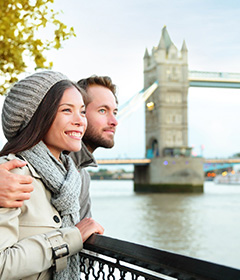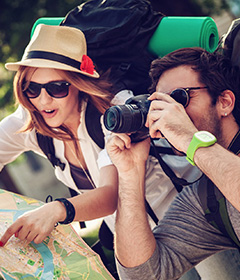In today’s fast-paced world, the importance of taking time off to explore new horizons cannot be overstated. Holiday and travel experiences offer more than just a break from routine; they provide a myriad of benefits that contribute significantly to personal growth, well-being, and life satisfaction. From enhancing cognitive function to fostering cultural understanding, the impact of travel extends far beyond mere leisure. Let’s delve into the multifaceted ways in which holidays and travel enrich our lives and contribute to a more fulfilling existence.
Neurobiological impacts of travel on cognitive function
The act of travelling has profound effects on our brain, stimulating various cognitive processes and enhancing overall brain health. Research in neuroscience has revealed fascinating insights into how exploration of new environments impacts our neural pathways.
Hippocampal neurogenesis and spatial memory enhancement
One of the most significant neurobiological benefits of travel is its impact on the hippocampus, a region of the brain crucial for memory formation and spatial navigation. When you navigate unfamiliar territories, your brain engages in a process called hippocampal neurogenesis—the creation of new neurons. This process not only enhances your spatial memory but also improves your ability to learn and retain new information.
Studies have shown that individuals who travel regularly demonstrate better performance in spatial memory tasks compared to those who don’t. This improvement is attributed to the constant need to orient oneself in new environments, which exercises and strengthens the hippocampus. As a result, frequent travellers often find it easier to remember directions and navigate through complex spaces, even in their daily lives.
Stress reduction through novel environment exposure
Exposure to novel environments during travel has a remarkable effect on stress reduction. When you step out of your comfort zone and immerse yourself in new surroundings, your brain releases neurotransmitters like dopamine and serotonin, which are associated with pleasure and happiness. This neurochemical response not only reduces stress but also enhances mood and overall well-being.
Moreover, the change in scenery and routine that comes with travel can act as a mental reset , allowing your brain to break free from chronic stress patterns. This neurobiological shift can lead to improved cognitive function, better decision-making abilities, and increased creativity upon returning to your regular environment.
Neuroplasticity stimulation in unfamiliar cultural contexts
Engaging with unfamiliar cultural contexts during travel is a powerful stimulant for neuroplasticity—the brain’s ability to form new neural connections and adapt to new experiences. When you encounter different languages, customs, and ways of life, your brain is challenged to create new neural pathways to process and understand these novel inputs.
This enhanced neuroplasticity has far-reaching benefits, including improved problem-solving skills, increased cognitive flexibility, and a greater capacity for learning. Travellers often report feeling more open-minded and adaptable after experiencing diverse cultures, a testament to the brain’s remarkable ability to grow and change in response to new stimuli.
Psychological benefits of holiday experiences
Beyond the neurobiological impacts, holidays and travel offer substantial psychological benefits that contribute to personal growth and emotional well-being. These experiences can profoundly shape our self-perception and understanding of the world around us.
Self-actualization through maslow’s hierarchy of needs
Travel experiences can play a crucial role in achieving self-actualization, the pinnacle of Maslow’s hierarchy of needs. By stepping outside of your comfort zone and facing new challenges, you’re given opportunities for personal growth and self-discovery. Whether it’s conquering a fear of heights by paragliding in the Alps or finding inner peace through meditation in a Balinese retreat, these experiences contribute to a sense of fulfilment and self-realization.
Moreover, travel often satisfies lower-level needs in Maslow’s hierarchy, such as belongingness and esteem. Connecting with new people and cultures can foster a sense of global community, while accomplishing travel goals can boost self-esteem and confidence. This holistic approach to need fulfilment through travel can lead to a more balanced and satisfied psychological state.
Flow state achievement in adventure tourism
Adventure tourism, a popular form of travel, provides excellent opportunities to achieve a psychological state known as ‘flow’. Characterized by complete immersion in an activity, flow is often described as being ‘in the zone’. Whether you’re surfing in Bali, rock climbing in Yosemite, or white-water rafting in Costa Rica, these challenging activities demand your full attention and engagement.
Achieving flow states during travel can have lasting positive effects on mental health. It’s associated with increased happiness, reduced anxiety, and improved overall life satisfaction. The sense of accomplishment and exhilaration that comes with mastering new skills in unfamiliar environments can boost self-confidence and resilience, qualities that often translate into other areas of life.
Cultural intelligence development and empathy expansion
Exposure to diverse cultures through travel is a powerful catalyst for developing cultural intelligence (CQ) and expanding empathy. As you navigate different social norms, communicate across language barriers, and observe varying worldviews, your ability to understand and relate to people from different backgrounds significantly improves.
This enhanced cultural intelligence not only makes you a more effective global citizen but also contributes to personal and professional growth. Employers increasingly value CQ in today’s interconnected world, making travel experiences a valuable asset in career development. Furthermore, the expansion of empathy through cross-cultural interactions can lead to more meaningful relationships and a broader, more inclusive worldview.
Post-travel eudaimonic Well-Being effects
The psychological benefits of travel often extend well beyond the duration of the trip itself. Many travellers report experiencing what psychologists term ‘eudaimonic well-being’—a sense of purpose, personal growth, and self-realization—long after returning home. This prolonged positive effect is often attributed to the transformative nature of travel experiences.
Reflecting on travel memories, sharing stories with others, and applying lessons learned abroad to daily life can sustain the psychological benefits of travel. This ongoing process of integration and reflection contributes to a more fulfilling and meaningful life experience, reinforcing the essential role of travel in personal development and life satisfaction.
Sociocultural enrichment through global exploration
Travel serves as a powerful medium for sociocultural enrichment, offering unparalleled opportunities to broaden one’s perspective and deepen understanding of the world’s diverse cultures. This aspect of travel is crucial in developing a more inclusive and empathetic worldview.
Cross-cultural communication skill acquisition
One of the most valuable skills acquired through travel is the ability to communicate effectively across cultural boundaries. When immersed in foreign environments, travellers are challenged to navigate language barriers, interpret non-verbal cues, and adapt to different communication styles. This process of adaptation and learning enhances linguistic abilities and fosters a more nuanced understanding of intercultural communication.
For instance, learning to haggle in a Moroccan bazaar or to use appropriate honorifics in Japanese conversation goes beyond mere language acquisition. It involves understanding cultural context, social hierarchies, and local customs. These experiences contribute to the development of a more sophisticated communication toolkit that proves invaluable in both personal and professional spheres.
Ethnorelativism development in diverse societies
Travel plays a crucial role in the development of ethnorelativism—the ability to see and understand cultures in relation to each other, rather than judging them by the standards of one’s own culture. As travellers encounter diverse societies, they often experience a shift from ethnocentric perspectives to more ethnorelative viewpoints.
This transition is marked by increased cultural sensitivity and a deeper appreciation for cultural differences. For example, experiencing the communal dining practices in Ethiopia or the concept of ‘siesta’ in Spain can challenge preconceived notions about ‘correct’ ways of eating or working. Such experiences foster a more inclusive worldview, where diversity is seen as a strength rather than a barrier.
Global citizenship and cosmopolitan identity formation
Regular travel contributes significantly to the formation of a global citizenship identity and a cosmopolitan outlook. As individuals engage with various cultures and communities around the world, they often develop a sense of belonging to a global community that transcends national boundaries.
This cosmopolitan identity is characterized by a deep sense of social responsibility, environmental awareness, and a commitment to global issues. Travellers who have witnessed the impacts of climate change on the Maldives or participated in community development projects in rural India often return home with a heightened sense of global interconnectedness and a desire to contribute positively to the world.
Physical health improvements from active holidays
While the mental and cultural benefits of travel are well-documented, the physical health improvements that can result from active holidays are equally significant. Engaging in physical activities while travelling not only enhances the overall experience but also contributes to better health outcomes.
Cardiovascular benefits of High-Altitude trekking
High-altitude trekking, such as hiking in the Andes or the Himalayas, offers substantial cardiovascular benefits. The combination of physical exertion and reduced oxygen levels at high altitudes stimulates the body to produce more red blood cells, enhancing oxygen-carrying capacity. This adaptation can lead to improved cardiovascular efficiency that persists even after returning to lower altitudes.
Moreover, the sustained aerobic exercise involved in trekking helps strengthen the heart, lower blood pressure, and improve overall cardiovascular health. Studies have shown that regular hikers and trekkers often exhibit better heart health markers compared to their sedentary counterparts.
Circadian rhythm reset in Trans-Meridian travel
While jet lag is often seen as a negative aspect of long-distance travel, it can actually provide an opportunity to reset one’s circadian rhythm. This internal biological clock regulates sleep-wake cycles, hormone release, and other important bodily functions. Travelling across time zones forces the body to adjust to new light-dark cycles, which can be leveraged to establish healthier sleep patterns.
For individuals struggling with sleep disorders or irregular sleep schedules, strategic travel planning can be used as a chronotherapy technique. By carefully timing exposure to daylight and adjusting sleep schedules during and after travel, it’s possible to realign one’s circadian rhythm for better overall health and energy levels.
Immune system boosting through environmental diversity exposure
Exposure to diverse environments during travel can have a positive impact on the immune system. The ‘hygiene hypothesis’ suggests that exposure to a variety of microorganisms, particularly in childhood, is crucial for developing a robust immune system. Travel, especially to areas with different environmental conditions, exposes the body to new microbes, potentially strengthening immune responses.
Furthermore, the stress-reducing effects of holidays can also contribute to improved immune function. Chronic stress is known to suppress immune responses, while the relaxation and enjoyment associated with travel can enhance immune system efficiency. This combination of diverse microbial exposure and stress reduction can lead to a more resilient immune system capable of better defending against various pathogens.
Professional growth catalyzed by travel experiences
The benefits of travel extend beyond personal development and health improvements; they also play a crucial role in catalyzing professional growth. The skills and perspectives gained through travel can significantly enhance one’s career prospects and professional capabilities.
Creative Problem-Solving skills enhanced by cultural immersion
Cultural immersion through travel fosters creative problem-solving skills that are highly valued in the professional world. When faced with unfamiliar situations or cultural differences, travellers must think on their feet and develop innovative solutions. This adaptability and creativity often translate directly into the workplace, enabling professionals to approach challenges from new angles and devise unique solutions.
For instance, a marketing professional who has experienced diverse consumer behaviors across different countries may be better equipped to develop globally appealing campaigns. Similarly, an engineer who has observed various architectural styles worldwide might bring fresh perspectives to design projects. The exposure to different ways of thinking and problem-solving across cultures enhances cognitive flexibility, a key component of professional success in today’s globalized economy.
Leadership development through group travel dynamics
Group travel experiences, whether organized tours or collaborative expeditions, provide excellent opportunities for leadership development. Navigating group dynamics in unfamiliar environments, mediating conflicts, and coordinating activities all contribute to honing leadership skills. These experiences often mirror workplace scenarios, offering valuable lessons in team management and interpersonal communication.
Moreover, the challenges encountered during travel—such as unexpected itinerary changes or cultural misunderstandings—require quick decision-making and effective communication. These situations serve as real-world training grounds for developing crucial leadership qualities like adaptability, empathy, and decisive action under pressure.
Global market insight acquisition for business professionals
For business professionals, travel offers unparalleled opportunities to gain firsthand insights into global markets. Observing local consumer behaviors, understanding cultural nuances in business practices, and identifying emerging trends in different regions can provide a competitive edge in international business dealings.
This experiential learning is particularly valuable in today’s interconnected business landscape. A professional who has experienced the bustling markets of Southeast Asia or the innovative tech hubs of Scandinavia brings a depth of understanding to global business strategies that cannot be replicated through secondary research alone. Such insights can inform product development, market entry strategies, and cross-cultural negotiations, making travel an invaluable tool for professional growth in the global business arena.
In conclusion, the multifaceted benefits of holiday and travel experiences underscore their essential role in leading a fulfilling life. From cognitive enhancements and psychological well-being to physical health improvements and professional growth, the impacts of travel are far-reaching and profound. As we navigate an increasingly interconnected world, the skills, perspectives, and experiences gained through travel become not just enriching, but necessary for personal and professional success. By embracing the opportunities for growth and discovery that travel offers, individuals can cultivate a more well-rounded, empathetic, and globally aware approach to life, ultimately contributing to a more fulfilling and meaningful existence.


